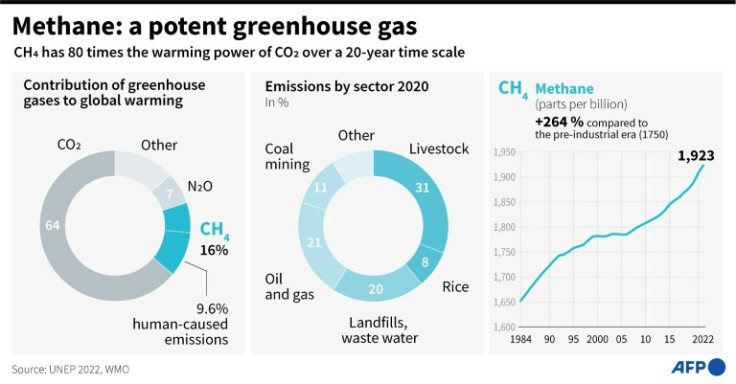Kazakhstan Firm Responsible For Huge Methane Leak Slapped With 'Inadequate' Fine
Methane is one of the three main greenhouse gases, including carbon dioxide and nitrous oxide.

Buzachi Neft, the oil company in Kazakhstan responsible for the leak of tonnes of highly potent greenhouse gas methane, has been slapped with a fine of $780,000 (£614,000).
The authorities swung into action after a BBC report made revelations about the leak last week in one of their reports. A well located in the Mangistau region of the country continued to leak methane for six months. The incident is being termed one of the worst methane leaks ever recorded.
The incident occurred after a blowout led to a fire in a gas well in June last year, which was only brought under control in December. It is being reported that an estimated 127,000 tonnes of gas was released in the incident.
Kayrros, the French firm which analysed the satellite data and found clouds of methane rising from the oil field has said that the fine imposed on the company is highly inadequate.
"A $780,000 fine comes to just $6.20 per tonne of methane," said co-founder and chief analyst at Kayrros.
"In the past, those responsible for methane leaks have sought to shirk responsibility or even deny that a leak has taken place. For that reason, any pivot away from denial is cause for celebration," he added.
Despite the damning reports, the company continued to deny the leak stating that it was just water vapor. However, the penalty imposed by the government has confirmed that the leak did occur. Buzachi Neft is yet to comment on the latest development.
The big picture:
Methane is one of the three main greenhouse gases, including carbon dioxide and nitrous oxide. The concentration of two key greenhouse gases, methane and nitrous oxide, has increased significantly over the years.
Methane gas contributes significantly to the greenhouse effect and, consequently, to rising temperatures. It is around 80 times more potent than carbon dioxide as a greenhouse gas over a 20-year period, but it stays in the atmosphere for only 12 years compared to centuries.
Methane is emitted from several sources, such as livestock, wetlands, and oil and natural gas systems. According to a new International Energy Agency (IEA) analysis, the global energy industry alone accounted for 135 million tonnes of methane emissions in 2022.
It said that methane is responsible for around 30% of the rise in global temperatures since the Industrial Revolution. It has a lifetime of about a decade but absorbs much more energy in the atmosphere. The largest source of methane emissions is agriculture, followed by the energy sector. The acceleration of methane emissions since 2007 has become a cause for concern for scientists across the world.
© Copyright IBTimes 2025. All rights reserved.






















